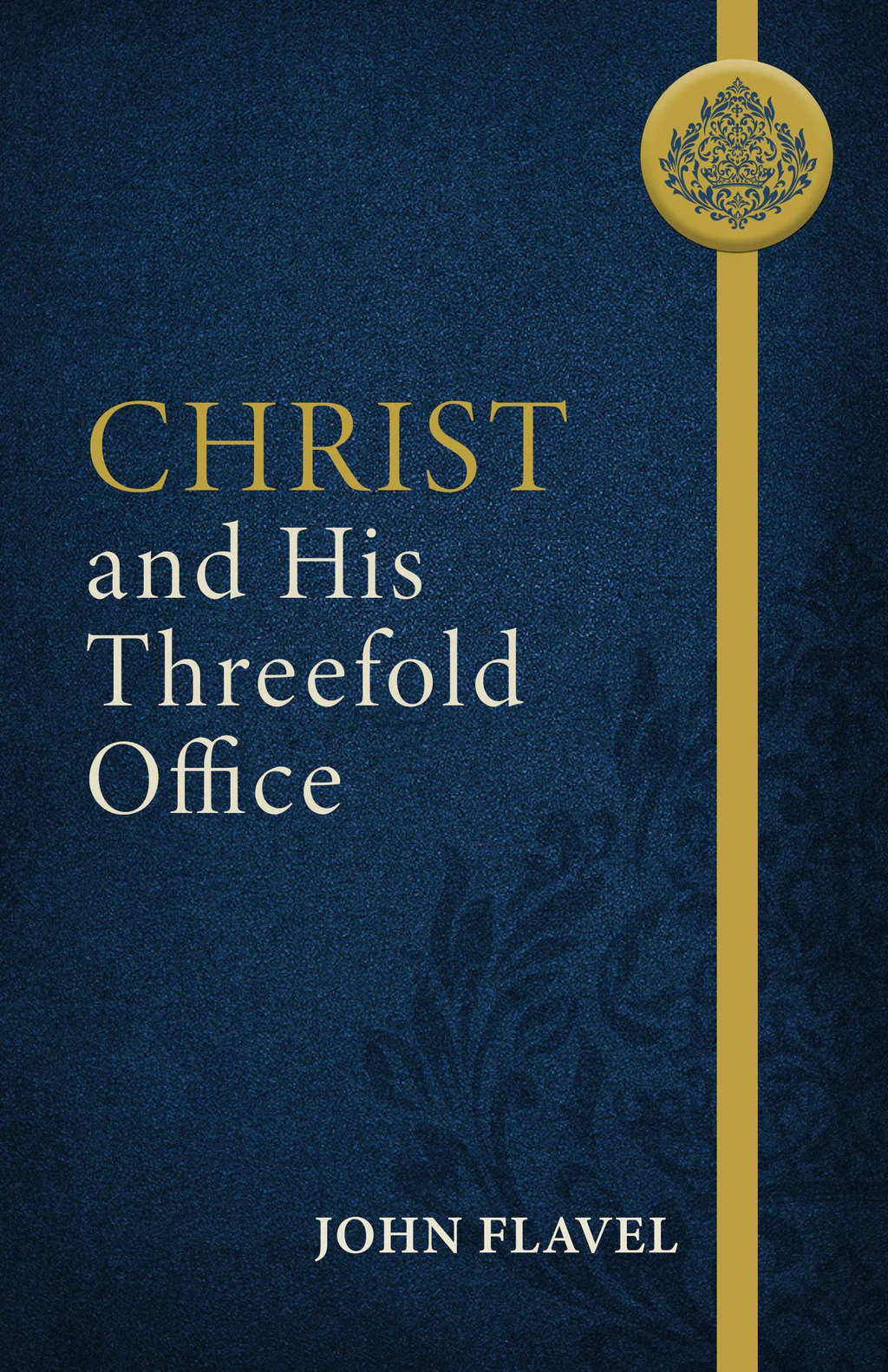
John Flavel
Reviewed by: A. Craig Troxel
Christ and His Threefold Office, by John Flavel (abridged by J. Stephen Yuille). Reformation Heritage, 2021. Paperback, 160 pages, $12.00. Reviewed by OP pastor and professor A. Craig Troxel.
In the first year of my pastoral ministry, I preached a twenty-eight-week sermon series on the person and work of Christ. Those sermons, marked as they were by the many foibles of a young minister, were nonetheless crucial to building a theological foundation for the years to come. My sure guide throughout it was The Fountain of Life by John Flavel—a collection of around forty sermons on Christ and his work, found in volume one of Flavel’s Works. Christ and His Threefold Office is an abridgment of The Fountain of Life.
We owe J. Stephen Yuille our thanks for this work of abridgment and for writing the preface, in which he briefly introduces Flavel as a person and as a pastor. The chapters chosen for this collection are those that highlight Christ’s redemptive work as a mediator, and particularly, in his threefold office as a prophet, priest, and king. Reformed theology has long favored this threefold framework for the work of Christ, and Flavel employs it with comfortable dexterity. He exposits each office for its distinctive perspective on Christ’s mediation, while holding to the overall unity of Christ’s one work. One of Flavel’s strengths is his ability to affirm the unity of Christ’s person (though in two natures), the unity of Christ’s twofold obedience (both active and passive), and the unity of Christ’s two states (of humiliation and exaltation). When appropriate, he ably points out the errors of departure from sound theology, and he warns of the consequent dangers that attend them.
Put biblically, Flavel’s approach is to present a “knowledge of the truth, which accords with godliness” (Titus 1:1). As an author, he is guided by the deeper currents of theology. As a pastor, he steers us, his readers, toward the spiritual benefits of these biblical truths. Flavel’s depth does not sacrifice his simplicity, nor vice versa. Each chapter leads with a particular doctrine, which is followed by several lessons that tease out the application of that doctrine. Since the work focuses upon Christ and his mediation, we are inevitably drawn to meditate on the benefits of our salvation purchased by our Savior in his manifold office. This is intended to aid us in our communion with God and our daily Christian walk. Throughout the book, Flavel encourages us to look away from ourselves and look to Christ for the completeness we have in him: “We must remember that Christ’s blood speaks when we cannot. It pleads for us when we are unable to speak for ourselves” (113).
If you wish to grow in the grace and knowledge of Christ, I warmly commend this little volume. In due time you will wish to move to the original in the first volume of Flavel’s Works. Many sacrifices must be made on the altar of abridgment. Not all are satisfying—like a minor one at the bottom of page 118 where the abbreviated sentence runs counter to Flavel’s point and the longer sentence in his Works. But this does not threaten the value of reading this book, nor the honorable labor of its editor.
December 14, 2025
December 07, 2025
November 30, 2025
November 23, 2025
November 16, 2025
November 09, 2025
November 02, 2025
© 2025 The Orthodox Presbyterian Church